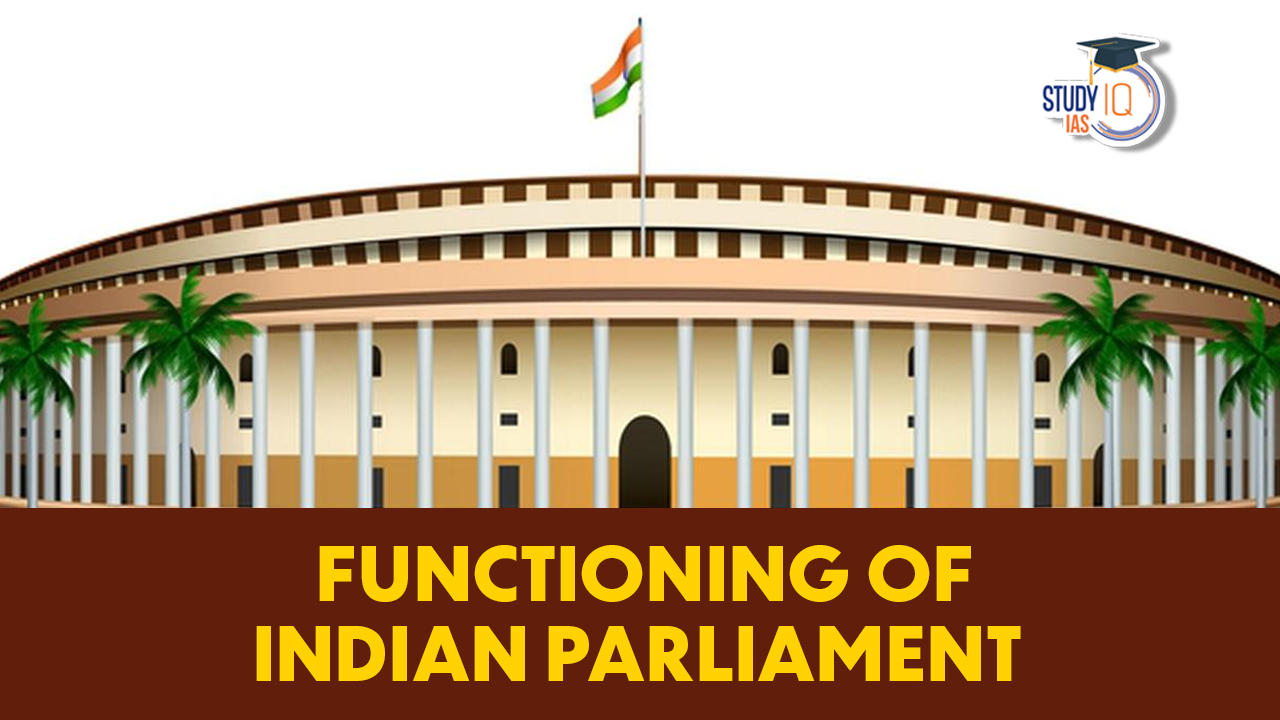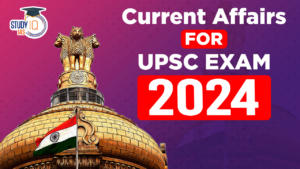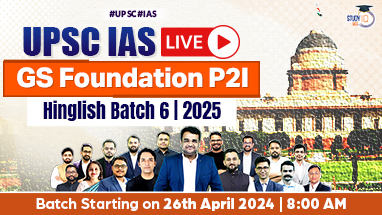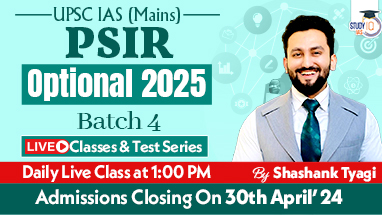Table of Contents
Context: Recently, Prime Minister of India inaugurated the new Parliament building.
About Parliament of India
- Parliament of India is the legislative branch of the Indian government; the executive and judicial branches are the other two. In India’s democratic system, the “Parliamentary form of government” grants the Indian parliament a significant role.
- Parliament of India, also known as the Sansad Bhavan, is the building that houses the two chambers of the Indian Parliament – the Lok Sabha (House of the People) and the Rajya Sabha (Council of States).
Significance of Parliamentary System in India
- Represents Diverse Group: The parliamentary form of government provides an opportunity to various ethnically, racially, linguistically and ideologically diverse groups to share their views in the framing of laws and policymaking.
- Responsible Government: The parliament can check the activities of the executive, as the latter is responsible to the former. The members of the parliament can ask questions, move resolutions, and discuss matters of public importance to pressurize the government.
- Prevents Authoritarianism: In a parliamentary system, the tendency of authoritarianism decreases as the power is vested in the council of ministers rather than a single individual. The parliament can remove the government through a no-confidence motion.
Functioning of 17th Lok Sabha
- Sitting Days: There have been 230 sitting days in the 17th Lok Sabha so far.
- It would, however, become the shortest full-term Lok Sabha since 1952 if it fails to beat the lowest full-term Lok Sabha ever recorded (331 sitting days in the 16th Lok Sabha).
- Bills being referred to Committees: The number of bills being referred to Parliamentary Standing Committees has decreased.
- Only 45% of all measures introduced in the Parliament since 2004 have been sent to committees.
- This raises the possibility of less thorough examination and review of legislation that is being introduced.
- Legislative Output: The 17th Lok Sabha saw a decrease in the number of laws introduced and passed.
- So far, 131 of the 150 introduced measures have been enacted (finance and appropriation bills excluded). The declining trend raises concerns about the Lok Sabha’s ability to pass laws.
- Discussions surrounding the budget: The 17th Lok Sabha’s most recent budget session was one of the briefest since 1952.
- The short amount of time allotted for discussing money-related topics, especially the Budget, raises questions about how thoroughly important fiscal issues have been thought out.
- Debates on Public Interest Issues: During the 17th Lok Sabha’s duration, there haven’t been many debates held in the Lok Sabha.
- Delay in Deputy Speaker Election: Despite the constitutional requirement that a Deputy Speaker be elected, the 17th Lok Sabha has yet to do so, even as it enters the final year of its five-year tenure.
Implications of Low Sitting of Parliament
- Limited Parliamentary Engagement: The limited number of sitting days raises concerns about the MP’s ability to fully engage in legislative proceedings and address the various challenges and issues faced by the country.
- Decreased Scrutiny of Legislation: The declining referral of bills to Parliamentary Standing Committees raises concerns about the thorough scrutiny and review of proposed legislation.
- Legislative Productivity: The decreased number of bills introduced and passed in the 17th Lok Sabha raises concerns about its legislative productivity. This limits ability to address critical issues, propose new policies, and enact necessary reforms, hindering progress and development.
- Limited Budget Discussions: The shortened Budget sessions and reduced time allocated for financial discussions raise concerns about the depth of analysis and deliberation on critical fiscal matters.
- Restricted Debates on Public Matters: The limited number of debates conducted in the Lok Sabha raises concerns about the comprehensive discussion and examination of matters of public importance.
Way Forward
- Responsible Conduct: Members of Parliament should prioritize constructive and meaningful debates, fostering a culture of respect, collaboration, and consensus-building.
- Parliament can change its rules to give MPs more teeth in questioning the government and empower its committees to become critical stakeholders in the law-making process.
- The government can amend the rules of procedure of both the Houses of Parliament under Article 118 of the Indian Constitution.
- It will make it mandatory to refer bills to the parliamentary committees and prescribing appropriate action against unruly members.
- A new Legislation Committee should be formed in the Parliament to oversee and coordinate legislative planning.
- The new Parliament building, equipped with modern facilities, offers opportunities for better communication and engagement.
- Members should utilize these resources effectively to engage with constituents, share information, and seek feedback, fostering a more inclusive and participatory democracy.


 Current Affairs 29th April 2024 for UPSC...
Current Affairs 29th April 2024 for UPSC...
 Towards Green Growth, Impact of Climate ...
Towards Green Growth, Impact of Climate ...
 Editorial of the day (29th Apr): Israel ...
Editorial of the day (29th Apr): Israel ...

















